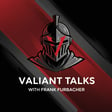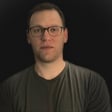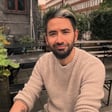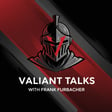Become a Creator today!Start creating today - Share your story with the world!
Start for free
00:00:00
00:00:01

Valiant Talks: From Maine to Nairobi – Declan Galvin’s Global Path
In Episode 6 of Valiant Talks, host Frank Furbacher reconnects with Declan Galvin, Manhattanville College Class of 2010, for a captivating conversation that spans continents and careers. Declan shares how a study abroad semester in Kenya transformed his life—ultimately leading him to build a career in strategic risk advisory and investigative journalism across Africa.
From his self-designed major in ethnic studies to fieldwork with one of Kenya’s most notorious gangs, Declan’s journey is anything but conventional. He reflects on resilience, curiosity, and the power of following your intellectual passions—even when the path ahead is uncertain.
Post-Production Credit: Mike Seminara '05
Transcript
Introduction to Declan Galvin's Background
00:00:26
Speaker
Today I'm joined by a very, very special guest. His name is Declan Galvin. um He is someone who I met through student government and i have always been engaged in my conversations with Declan, um with his perspective and his curiosity. So Declan, welcome.
00:00:48
Speaker
Thanks, Frank. Thank you for inviting me. So Declan, tell us what your up to today where you are in the world and, um, yeah, what are you doing for work today?
00:01:00
Speaker
Sure. So I'm, I'm in Nairobi, Kenya. Um, I've been here now 10 years. I absolutely love it. It's home. Uh, and I run a strategic risk advisory company.
00:01:12
Speaker
I founded it a couple of years ago. Um, and I basically work with investors to understand political and social and security risk in Africa. So Declan, take us to the beginning because um so many of the people I knew at Manhattanville um were people who were within a very close driving distance to the school, myself
Early Life and Education in Maine
00:01:36
Speaker
included.
00:01:36
Speaker
um You are ah not the case there. So tell us, where did you grow up? What was your community like? ah So I grew up in in Maine um and, you know, specifically mid coast Maine.
00:01:49
Speaker
um And, you know, it was a ah ah very kind of straightforward community, right? Not many people in the town. um You know, i like to joke, it had it had one traffic light and that was just because the interstate would kind of cross through the middle of it.
00:02:06
Speaker
um And, you know, we all kind of went to the same schools um through elementary up to high school. um And that's that's that's the town that I grew up. I went through kind of public school for the majority of it. And then I did three years at a private boarding school in in central Maine.
00:02:25
Speaker
So, you know, I have this idea in my head of folks from Maine art tend to be um well inclined to hang out in the outdoors. Would you put yourself in that bucket?
00:02:36
Speaker
i i like I like camping. i do that. um I don't like it. i Sorry, I don't get to do as much of it as I certainly as I used to. um in In Maine, there's a big hunting culture.
00:02:48
Speaker
um So you've got deer season and bear season. um And I was never much of a hunter, um but you know we would hang out. We did, we used to we used to do, uh, uh, frisbee courses, right? So, you know, you out in the woods, you've got all these, it's not ultimate frisbee. ah Um, we used to do stuff like that. Um, but yeah, that's, that's, I mean, it is outdoorsy for sure.
00:03:13
Speaker
It's not like New York. All right, so Declan, ah we'll try that again. we You're in boarding school. um It's now time for you to determine where you're going to continue your education.
00:03:26
Speaker
ah What informed your decision making in going to Manhattanville and and what were the things that you had in mind about continuing your education? Sure, sure. Yeah, so so one one of the things which is a constant in my life is I have this incredible track record of of failing at getting into schools and programs.
00:03:47
Speaker
ah and And when I was applying for college you know ah to to to go to an undergrad, I applied to tons of programs, right? So American University.
00:03:58
Speaker
and And because because I'm um quite conservative in terms of how i how I plan for the future, I would go for kind of ambitious programs, kind of what, remember the whole middle road schools and then safety schools.
00:04:10
Speaker
And I basically was just getting rejected by everybody, including safety schools. um And so in the end, the way it all kind of shook out from this process was Manhattanville accepted me.
00:04:22
Speaker
Hofstra University, you know, in Long Island, they accepted me as a February freshman, which was basically just dumb luck. And then George Mason University had accepted me, ah you know, but they said that yeah I'd have to live off campus or something like that.
00:04:37
Speaker
So in in a strange way, I had nothing to do with choosing my school. I really didn't have any options. And it felt in ah in a weird way, particularly in hindsight, that Manhattanville ended up choosing me, which, you know, it was an amazing fit.
00:04:52
Speaker
It was an incredible community. Academically, I loved it. And so, you know, I don't have any any regrets on any of that, but um I wasn't exactly presented with a lot of options. It was that or going back to work at like KFC, which is what I did in high school.
00:05:08
Speaker
so Did you visit the campus before applying and and how was your visit? I did. i was so so and i've And I've told this story before. I went to campus as an overnight.
00:05:22
Speaker
And actually, Dave Bedard was my overnight host, same as Nick Close and stuff. So so Dave Bedard's track record of converting overnights into students, I mean, somebody should have given him some sort of a commission.
00:05:35
Speaker
um So Dave Bedard was also my my overnight host. And it was a during um Manhattanville's, I think it was there ah their inter their cultural week or or global citizenship week.
00:05:51
Speaker
And so there was all of these awesome ah programs and talks and lectures. And I still remember half a dozen programs that I went to as an overnight.
College Experience and Study Abroad in Kenya
00:06:03
Speaker
And I was just like, this place is is incredible. um But I think what's what what really solidified it for me was I had i sat in on on two classes in particular. So the first was ah Professor Ashkenazi's Modern Wars of the Middle East.
00:06:20
Speaker
And then there was like a small break. And then it was Ashkenazi's Modern Russia class. And I sat in on both of those classes. And I was just like, this place is incredible. Um, I told that to Ashkenazi and he didn't, he didn't care at all, but I'm just like, no, you realize that like those classes were a huge part as to why I said, oh, this place is going to be great.
00:06:40
Speaker
Um, and, uh, yeah, so I did the overnight thing. It was also casino night. I remember this vividly, uh, you know, so, you know, somehow I don't remember what kind of cash they gave us, but you know, they gave us like, you know, fake dollar bills and we're out there with chips and, you know, uh,
00:06:58
Speaker
People had brought rum in in. Remember those old, remember the remember the flick cups, the small clear ones with ice they'd have at the at the pub parties or whatever? People were slipping rum into them.
00:07:10
Speaker
It was an incredible casino night. So it was like the perfect week to have overnights there. And I was basically sold, even if I didn't have no options.
00:07:22
Speaker
And so you decide to go to Manhattanville, um you arrive to campus, and um what are your first couple of days in your first year like? that that so So you also, and i was I actually shared this conversation with Danny Cheligate when I talked to him last week.
00:07:39
Speaker
So when during orientation one, when or i think actually it was orientation two, right? so when we, as new freshmen arrive, And we don't know anything about it. You know, we're all given, you know, you are an OA. I was an OA as well.
00:07:53
Speaker
My orientation advisor was Danny Cheligat, who's from Kenya. And so like really one of the first people that I meet first day of college is somebody who's become like a lifelong friend, right? So him and his, his, his two siblings, I knew all throughout college. They were obviously a year ahead of me.
00:08:11
Speaker
Um, And then I have like not only remained in contact with them as friends, I know, you know, their families in Kenya. um You know, they you know, ah Danny lives here. i live in Kenya. So you can draw in. I guess I'll mention this later. You can draw a straight line between my first day meeting Danny and walking me to my dorm room to studying abroad in Kenya, which was life changing.
00:08:36
Speaker
to me now living here for 10 years. um you know That's kind of how i how I frame my first day and at at Manhattanville. um But like also like the first week met lifelong friends, right? Tom Heiliger, Rob Pelman, all these other people who i've i've been I've remained in contact one way or another.
00:08:59
Speaker
Yeah, that's that's that's like day one.
00:09:05
Speaker
That's amazing. That is actually incredible. um What would you say um was life like in terms of your involvement and your interest in your study area, um but also outside the classroom?
00:09:24
Speaker
Yeah. So I, um i was you know and quite nerdy in my own way. um And I was just super interested in taking whatever classes I could.
00:09:40
Speaker
and I wasn't really, i mean, i I basically approached my studies in a couple of ways. The first one is I wanted to do everything in my power to not take a math class, which I was successful in.
00:09:53
Speaker
And, you know, because of our general education distribution, you know, at that time, you know, you could get away with it. I'm not sure it's the case now. So I didn't take a single math class. I took like a computer applications class and like some human disease biology class or something like that.
00:10:11
Speaker
So that was that was like the first check. The second one was. I wanted to study and take classes in all these different programs in psychology and sociology, definitely history and political science.
00:10:24
Speaker
There was just all this stuff and all these great classes that that Manhattanville offered. and i And I kind of wanted to do it all. So i I just kind of self-designed my major, right? Which is a program that they had then and they still do.
00:10:37
Speaker
And it's essentially like kind of, i don't want to say like a cop-out, but essentially i could take whatever classes I wanted as long as I could justify them. And so I took tons of classes. And also in this time, they didn't have any credit overload ah charges. so so So I was taking like – I was like maxing out every semester on classes um and you know didn't pay any extra tuition.
00:11:04
Speaker
um And that was both you know a good thing and a bad thing. It was good because first, I got to take and learn all this awesome stuff. And then secondly – ah and this was me being ignorant, I was taking what I was interested in and I wasn't considering the workload. So I was taking all these 3000 and 4000 level classes, which all have essays and, you know, 10 and 15 page papers. And so I was writing 10 page papers much more than anybody else.
00:11:33
Speaker
And I didn't even realize how ignorant that was until like senior year when everybody around me had to take those 4000 level classes and they were complaining about one paper. Um, But that's that's that's basically what I did. i just took whatever I wanted and then just tried to justify it.
00:11:49
Speaker
um How many course courses are we talking about? Because typically it would be five that somebody would take. How many were you taking?
Curiosity and First Trip to Africa
00:11:57
Speaker
So I took, I ended up with a major, right, a self-designed major, which was which was ethnic studies.
00:12:05
Speaker
And then I i took a a minor in African studies, which was five classes, which a minor in genocide and human rights studies, which was another five classes.
00:12:17
Speaker
And then i I minored in economics, which was five classes. and the way I did it, because I I'm stubborn like that. I didn't want any more than one, because what a lot of people would do is they would, they would take their major and then try to create a minor out of that.
00:12:33
Speaker
And I didn't want to, I didn't want to apply more than one course of my minor to my major. So, so it was essentially for uh, you know, four, four classes for each minor, but I was taking so many. And then I did my study abroad in Kenya and I took a full course load in Kenya, which was covering a lot of my economics and, uh, and Africans and, uh, yeah, a lot of my, my economics and, uh, major courses.
00:12:59
Speaker
What is it about Africa that is so intriguing to you? i I think that part of this, uh,
00:13:10
Speaker
Interest and I guess, you know, obsession to us to to to ah a fair extent. It came from the world is in itself very fascinating to me, particularly when I was in my teens and in my 20s. yet there is so much of the world that just doesn't get talked about.
00:13:30
Speaker
it's glanced over, right? If we think about for for most people in high school, the only time they talk about Africa is around the transatlantic slave trade and maybe one or two classes in a history course that you were forced to take in your senior year and you're not paying attention, right?
00:13:47
Speaker
And that's such an unfair ah characterization of what the whole world is, but how would you know one way or another? So whether it was Africa or the Middle East or Asia, I mean, i was just so curious about these places that, that that um that, that, that were there. And then, you know, again, growing up in Maine, where it's a very kind of ah simple place, you mean, there's not exactly diversity there. There's not people that you can talk to um with those kinds of experiences. um And, you know, you're not running into people who, who are going to be experts in those things who can answer your questions. And so,
00:14:26
Speaker
you know, you had, i I felt like I needed, you know, outlets to pursue those interests and and learn that stuff. um That's, and and, and, and so Africa just became like a key part of that.
00:14:37
Speaker
um And I just got more and more interested, you know, as, as time went on. Was there, i know you, you mentioned professor Ashkenazi.
00:14:48
Speaker
um Are there any other classes or professors or moments that really inspired you? Um, I think Quan Ha Yim's classes in political science, particularly around humanitarian law um and his international relations classes, I thought that was that was incredible, right? And i think I think back to those days, right, as like a sophomore at Manhattanville and like the, re again, i am I am a bit of a nerd, right? Like the reading lists,
00:15:25
Speaker
you know, that we were able to be given and, you know, books that were so topical because in those days we were talking about Abu Ghraib and kind of the war in Iraq and, and there was just so much that was changing in the world. And, you know, through these classes, you really felt like you were, you were able to kind of understand these dynamics a little bit more.
00:15:45
Speaker
I thought that was awesome. And you, and, you know, even in grad school, right. So I, you know, after Manhattanville, I ended up going to NYU and I did my master's in African politics. It's still not the same. mean, was awesome.
00:15:56
Speaker
But like the the process of discovery and learning stuff, you can't replicate that, right? What you did as an undergrad, it's just not the same anywhere. You mentioned you studied abroad in Kenya.
00:16:10
Speaker
Tell us about that experience. And was that your first time going to Africa? Sure. So if I, i when I chose to study abroad and in Kenya and go to East Africa,
00:16:23
Speaker
It was kind of the most perfect combination of of knowledge and abject ignorance. That if I knew more than what I did, i would have i wouldn't have done it.
00:16:35
Speaker
And if I knew less, then I wouldn't have done it either, right? So I still, when I think of what I ended up doing, particularly when we go back, I mean, this would have been like 17, 18 years ago when I first went. I mean, the region was very different, right, than it is today.
00:16:52
Speaker
much, much more difficult to navigate and move around than than today. And there was there was less, I mean, ah the if you think about it, right, like just the the proliferation of technology, WhatsApp didn't exist then, Facebook Messenger did not exist when I started the travel.
00:17:10
Speaker
um You know, ah there wasn't there wasn't these opportunities to even know how to like check bus schedules. um But That whole experience, right, coming to Kenya and and and and being able to initially it was just one semester through the study abroad program.
00:17:28
Speaker
It's without like being without exaggerating. I mean, it was life changing, right? Like literally because I did that, because I studied at USIU here in Nairobi, I mean, it changed my life. I currently live here, right? Like my closest relationships, my business network, my interests, everything in my life is now based around Kenya.
00:17:50
Speaker
and And had I done the normal thing, which is go to, and I'm not denigrating people's study of abroad choices, but gone to Madrid or Italy, or if you're really experimental, you go to you know Cape Town, South Africa, and then partied the way a lot of people do. Had I chosen that, I wouldn't have done the Kenya thing and my life would be different.
00:18:11
Speaker
I mean, literally. Um, So, you know, my best friend is out here. I was the best man in his wedding. um You know, every every kind of major element of my life is now somehow centered around this place.
00:18:24
Speaker
um and and And I could connect that back to the study abroad experience. What I did when I was here, I mean, I took, again, like I probably should have partied more.
00:18:34
Speaker
I took a lot of classes. I mean, I made tons of friends. um The university I went to is ah a very strong university out here. So there was lots of what could have been really good future connections. But, um you know, I just kind of just did did my thing, you know, hung out with people. we traveled you know throughout the region.
00:18:55
Speaker
During that time, I studied Swahili. So I was before the actual courses began at USIU, I spent the summer in East Africa. So I was I did six weeks in Swahili training in Tanzania.
00:19:07
Speaker
I worked with some NGOs in Rwanda. um I did some stuff in Uganda. I went into Congo and Burundi. So I did this whole thing. And going back to my first remark that, you know, if I was any smarter, I wouldn't have done it.
00:19:20
Speaker
I didn't know anybody. I'd never been to these places. and And, you know, I remember very stupidly, I got off the bus in Kigali, which is the capital of Rwanda. And I knew that the the the brits had had the Brits and the Belgians had had a hand and in that country.
00:19:38
Speaker
But the French colonized it for for much longer. And so I was surprised when I got off the bus and they were speaking French because the rest of the region only speaks English. So there's so many stupid, ignorant things that I did, and I can't believe it worked out.
00:19:51
Speaker
It was really a disaster in waiting, and and I don't know how I avoided it.
00:19:58
Speaker
So your ah you're graduating Manhattanville, and you're looking to see what's next. What was
Career Challenges Post-2008 Crisis
00:20:05
Speaker
next for you? Did you go straight to grad school? I didn't.
00:20:09
Speaker
I was like significantly affected by ah by the economy. If you remember the 2008 crisis, i mean it dilated the jobs market. and this was like you know this and this This has shaped my worldview significantly, the difficulty in finding meaningful work.
00:20:28
Speaker
um what are you going to do with, a as I told you, what are you going to do with a degree that you made up called ethnic studies? Like, what are you going to do with a minor in African studies? Right? Like at the time I was just pursuing stuff that I was like super interested in.
00:20:43
Speaker
um and the first, you know, the first two years was just miserable. Um, uh, and, uh, you know, yeah, I mean that, that, that was, that was the first thing.
00:20:56
Speaker
But what's incredible, and not to like jump ahead, but like of of almost anybody at Manhattanville that that within my network, right? So, okay, if you studied business, you're doing business. If you studied education, you're teaching.
00:21:10
Speaker
But there were a lot of other people who studied things like political science or law or these other the things. And a lot of them are not... their careers are not what they studied, which is perfectly fine, right? Like that's the like the the the the major is supposed to prepare you for you know any you know any career of your choice, not not a specific thing.
00:21:31
Speaker
What's awesome that I've been able to do is I've built my career around exactly the stuff that I was interested in in college. So like a month ago, I was with one of my clients and he asked a question about the Banyamulengi community in Eastern Congo.
00:21:46
Speaker
Right. This is something that I studied at Manhattanville as an undergrad. it's it's ah It's a dynamic that I have looked at you know for for now more than 10 years. I have the answers to the question. But like, who would have thought that studying certain communities in borderlands in eastern Congo would somehow actually be monetizable information for you? Right.
00:22:05
Speaker
So like people without that being too arrogant, but like so. So I have clients who come to me. because I have answers to these questions and and they they consider these questions value.
00:22:17
Speaker
Right. And so they pay me to give them my thoughts on stuff like that. I mean, and that's, that's like such a privilege um that I've been able to, to, to build something, you know, to build a life that based off of stuff that I'm interested in.
00:22:30
Speaker
So when did you move to Kenya? Moved here about 2015. Yeah. 2015. Okay. So you've been there years. you first get there Do you have a job lined up?
00:22:44
Speaker
I did. So i okay, so in between graduating from Manhattanville, I ended up going to and NYU, getting a master's in African politics. One of the awesome things that I was able to do is for my for my thesis project, um I managed to to get a fellowship that paid for me to come and do an ethnographic kind of social study with Mungiki, which is a... um One of Kenya's most notorious gangs, right? They were involved in post-election violence, cartel activity, all sorts of other stuff. But there's such a ah fascinating ah social group and phenomenon in Kenya that a lot of people don't understand and a lot of people are are like quite afraid of.
00:23:28
Speaker
But I was obsessed with this particular organization and this this network sense since the time I was studying abroad. and And, you know, part of it was because people used to say, oh, these people are crazy. they're they They drink blood. They're all these things.
00:23:43
Speaker
And i knew that that couldn't I knew that there was more to that story, right? Like human behavior is rarely that reductive. So it was something that i also had like a minor obsession with. And I was able to to spend six months doing ethnographic work with these guys and and produced some really original insights and research.
00:24:02
Speaker
So that plus the other work that I had done in in Africa and the investigative reporting that I did for a few years. meant that I was eventually hired by a ah like a security company based out here to do intelligence and investigations work.
00:24:20
Speaker
So when i moved when I moved over here around 2015, I had a job in hand and i got to live in a beach, right? I lived on this beautiful beach in Kenya, which most people don't realize exists.
00:24:32
Speaker
So I lived there for two years, worked with that company for a while before jumping to another company doing intelligence work. and risk advisory work with them. So tell us what is involved with this investigation and risk advisory um you know industry.
Role in Strategic Risk Advisory
00:24:51
Speaker
um Here, it might mean something a little bit different than it does in Africa.
00:24:58
Speaker
So this this is, you know, intelligence is is essentially a ah process. ah ah Intelligence is essentially processing information and making predictions based off of that process and based off of evidence that you have.
00:25:15
Speaker
And so what I what i do is, yeah so what what you need to do in order to to be good at that is you have to have the right access to information. ah You have to understand the problems that you're trying to to understand or solve.
00:25:30
Speaker
And then you need to have enough command over those dynamics to develop what we call kind of analytical judgment. which is which is a fancy way of saying being able to kind of have a a wealth refined opinion.
00:25:48
Speaker
And then you combine that into say, okay, well, based off of my well refined opinion on these matters, I think a B, and C will happen in the future. And it's that A, B, and C kind of your your your forecast of that future that people ultimately need in order to make enterprise decisions, in order to make safety decisions,
00:26:08
Speaker
in order to figure out how to resource problems, um create resiliency in terms of your investment strategy. um that's That's what intelligence is, particularly out here.
00:26:20
Speaker
And it's hard to do out here because we don't have, but because because information is fragmented and it's disparate and it's rarely digitized.
00:26:30
Speaker
And so this so so to do intelligence very well in Africa requires a degree of cultural intelligence and knowledge. It requires networks.
00:26:41
Speaker
It requires an understanding of human psychology so that you can understand not just what somebody's saying, but why they might say it in a certain way, what they may omit from what they're telling you.
00:26:52
Speaker
And so all of that kind of gets rolled into what you hope is a forecast that um that that that provides meaning to to your client.
00:27:03
Speaker
So what are some of the topics by in which you were seeking information for or what groups of people are you keeping an eye on or are your clients interested in keeping an eye on?
00:27:17
Speaker
um Because it's, to me, like you mentioned a gang before, um you know we're talking about ah so much ah related to safety and how does that How does that tell me about like, what what do you do with that? How do you get it?
00:27:38
Speaker
and And what are the things that people want to know about? So I'll start with the the last part of the question. So what I love about my job and and what I get to do with my company is I get to calibrate kind of work streams and and support to whatever the client is asking, right? Or whatever they need.
00:28:01
Speaker
or what they don't know that they need. And then you help them realize actually they should be asking certain questions. And those questions oscillate between being very high level, a question like, you know, is is Kenya going to default on its Euro bond payments, right? And sovereign debt obligations, right? That's a very high level question.
00:28:22
Speaker
A very specific question, right? And I'll just go back to the Banyu Molenge example I gave earlier. ah quote the client asked me a couple of weeks ago, they're like, what is the Banyu Molenge's role going to be in this forthcoming kind of this, this parallel authority that's growing in in Eastern Congo.
00:28:41
Speaker
Right. So and that's, that's the latter part is what is this ethnic community, which is, which is a confusing community to understand and how are they going to incorporate themselves in a city government or town government?
00:28:54
Speaker
Right. So that's, that's extremely granular. um And so you, you approach the, You approach answering those two very different questions in the same way, but you're going to be using different kinds of data and you're going to have different thresholds of what's considered ah verified or or or needing additional or or where there's gaps on that that particular data.
00:29:21
Speaker
um And so so that's going to be, you know, the really the best way to do it, particularly in this region is you have to You have to have a reliable network of people who can answer questions to to to your level of um ah to to to your your your specific criteria around specificity and consistency.
00:29:42
Speaker
and And then you you basically then channel that through that process that I told you, and and then you answer it that way. So it's it's that's how you that's that's the how that you do it.
00:29:53
Speaker
um and And there's... and you know A lot of it, a lot of intelligence doesn't need to be sneaky. Right. And intelligence is not stealing state secrets. Right. That's that's espionage.
00:30:05
Speaker
um You know, intelligence is being able to provide good judgment and a meaningful forecast on the way things might go. um and And there's so many different ways you can you can do that.
00:30:19
Speaker
And you also spent time as a journalist during your time in Africa.
Journalism and Human Rights Reporting
00:30:24
Speaker
How was that experience? And what are some of the stories that you wrote about?
00:30:31
Speaker
Sure. So my time my time as a journalist is like a fever dream, right? Like it was... it was It was awesome. it was it was It was mental. It was it was meaningful. it was It was incredible. I worked with this this great news organization called Sahara Reporters, and it just focuses on on West Africa.
00:30:55
Speaker
And i i basically got to lead a lot of their a lot of their really critical and investigations around human rights abuses, corruption, ah covering the elections and and kind of political news.
00:31:11
Speaker
it was just It was just awesome. And I mean, I'm really proud of the work that we did at Sahara. um we you know ah One of the first investigations I did, it became known as Ikiti Gate. So Ikiti is a state in in Nigeria.
00:31:28
Speaker
And the way Nigeria's elections work is ah little bit like the US where you don't have every election all in one go. You'll have like you'll have like the midterm elections.
00:31:39
Speaker
And so because Nigeria has got states and then it's of course, got a president, ah some states have like midterm elections and some states, same as in the U.S., are more significant ah barometers to understand which way political winds are moving.
00:31:56
Speaker
And so in Nigeria in 2014, very important state was Ikiti state. And that that election was totally rigged, right?
00:32:07
Speaker
And so you had the national security advisor, his name was Sambo Dasuki. You had the minister of defense, his name was Musilio Abani Coro.
00:32:18
Speaker
You had, ah you know, the the eventual governor, Ayo Fayoshi. And these guys, with another general, completely rigged the election. And We managed to get hold of a whistleblower who recorded these meetings ah on on the um the the ways and means they were going to rig the election. and and And we were able to then verify all that information.
00:32:40
Speaker
And so that that particular story that that that I was able to investigate was such like a blockbuster news story. It actually postponed Nigeria's presidential election because Akiti was the state that they were going to use to as a blueprint to rig the whole thing.
00:32:57
Speaker
And so because that that investigation came up before the election, they had to they had to redevelop a new strategy. um So that that was like one of them. did. I investigated money laundering through a former president's foundation. They had to close the foundation. i did tons of asset tracing and investigations, which led to, you know, we discovered millions of dollars in stolen assets.
00:33:19
Speaker
Those some of those stuff got seized. I managed to contribute to to an investigation where the U.S. was providing money to a ah military battalion, and and and the investigation we did showed that the battalion was committing human rights violations, and we cut the funding.
00:33:38
Speaker
So like you know this was like two years of this kind of stuff. It was it was awesome, right? And my my my former boss, who's still a friend of mine, he he's a human rights, you know, defender himself. He's been thrown in prison many times.
00:33:54
Speaker
And like, we got along so well because every day the objective was who are we going to like name and shame today? And that's what we would do. We did that for years. Like let's find these people. Let's embarrass them.
00:34:06
Speaker
Let's call them out on what's going on. It was absolutely awesome. see i'm That's just incredible. That's, uh, it makes me want to, uh,
00:34:18
Speaker
ensure that we have another episode so we can cover more on ah some of the issues that you were able to bring to light because that's just, that is so interesting.
00:34:30
Speaker
um Couple quick hit questions for you, Declan. um What's one thing about Africa that you know today that you wish you knew when you first arrived?
Reflections on Resilience and Advice for Graduates
00:34:41
Speaker
um
00:34:44
Speaker
i I like the more that time goes on, um the more impressed I am with Kenyans in particular, but but people in general and how resilient ah people are.
00:34:58
Speaker
Right. And, you know, it's it's so easy and and and I'm not going to say that I've been above it. It's so easy to think of people as victims first, as opposed to people who who have the resiliency to to make things work.
00:35:11
Speaker
um ah i think that I think that's a lifelong lesson, right? I think that that just kind of gets calibrated as time goes on. um But I wish i i wish that I had seen it that way sooner.
00:35:26
Speaker
I'll give you an example. During COVID, I was given the option to to leave Kenya and to go back to the United States back home. or to stay or to stay here. And for me, there was no it was no question what I was going to do. I was going to stay here.
00:35:40
Speaker
Because in the US, we had people mobbing Walmarts for toilet paper. We had people ah getting in fistfights over gasoline. it was it was it was people you know The morgues were running out of space in parts of the United States with all the dead bodies.
00:35:58
Speaker
and And people out of the US, s right, the the Gates Foundation in particular, I remember, predicted that the body count in in in Africa was gonna be out of control.
00:36:09
Speaker
But it wasn't, right? this like like it It didn't turn to chaos anywhere here. The chaos was in the US and the UK. um And that is because people are resilient.
00:36:22
Speaker
People in in in most of Africa are used to things not working perfectly. They're used to processes needing to have quick fixes.
00:36:32
Speaker
And so that resiliency means that people here are are predisposed to to make... less dramatic decisions. um And and you have to be here for a long time in order to really appreciate that that kind of resiliency and what's missing from you know our home communities in the US.
00:36:51
Speaker
That's very interesting. Very interesting. um Another quick hit. What your favorite place on campus?
00:37:00
Speaker
um It would need to be probably the library or the quad, the quad, depending on the time of year And one piece of advice that you'd have um for either someone who is a recent graduate or um could be anyone in the ebbs and flows of their careers.
00:37:20
Speaker
i think I think increasingly we need to understand finance better. i think people need to understand how businesses operate. I think that that is going to be the one of the best ways for you to to maintain kind of continuous employment.
00:37:36
Speaker
um I know that's like a curmudgeonly response, right? And as I mentioned earlier, i mean, I graduated from Manhattanville with a degree in ethnic studies that I like made up. And it was a very difficult period of time between getting, you know, between graduating and getting meaningful work.
00:37:51
Speaker
um I think if I had more business skills and if I understood how finance and and those things worked, even if it was just in the back pocket, I think things would have been easier. So I think people really need to make sure that they' they're diversifying ah their knowledge with things that they're interested about.
00:38:07
Speaker
and things that is practical. Well, thank you very much, Declan. ah Really appreciate all your time and um looking forward to episode two one day where we can share more stories about some of the ins and outs of your experience in Kenya. No, thanks, Frank.
00:38:23
Speaker
I you thinking of me and I look forward to running into you next time I'm in New York and New Jersey.






